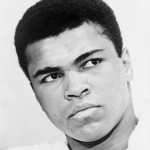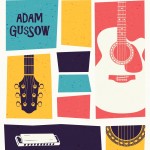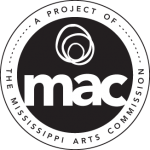
Published in 2011, the Sports volume of the New Encyclopedia of Southern Culture featured a biographical essay on Pat Summitt, written by Dr. Charles Reagan Wilson.

Melanie Young feels as though she’s come home since she’s been hired as the new publication manager of Living Blues magazine. She first began working with the magazine in 2009 as the circulation manager, and also had an editorial internship with the publication. Since then, she’s been a contributing writer for Living Blues and even wrote her Southern Studies master’s thesis on the magazine in 2012.

A New Encyclopedia Tribute to Muhammad Ali Muhammad Ali died this past Friday, on June 3. The following biographical essay by Jimmy Thomas on the boxing great and civil rights leader was included in the Gender volume of The New Encyclopedia of Southern Culture. Muhammad Ali (b. 1942) Boxer. “Float like a butterfly, sting like …

New Book by Darren Grem Explores Business and Evangelicalism Dr. Darren Grem joined the faculty of the University of Mississippi in 2012 as Assistant Professor of History and Southern Studies. His book, The Blessings of Business: How Corporations Shaped Conservative Christianity, just came out from Oxford University Press. The Blessings of Business details how business …

The South’s antiquity is here whether we want it or not. Our predicament is to decide whether or not we want to allow it to be here. To leave this past unseen and unstated is to accept the kind of amputated humanity we have been dealt by what we imagine to be a noble, if fraught, past. In reality, that past is just a story of theft. Legitimacy can’t be found nor can it be contrived. It can only be earned. We need to understand that what happened at Jamestown, and Stono, and Cowpens, and Appomattox, and Selma are in some ways just so many quick breaths taken in a very long life.

New York native Adam Gussow arrived on a hot and humid University of Mississippi campus in August of 2002, harmonica in hand. The Center for Study of Southern Culture was in need of a blues expert at the time, and he was exactly what they were looking for. Gussow said moving from Vassar College in New York state to small-town Mississippi was a big transition, but it was an ideal one.

In a cultural climate based on the superficial, one has to wonder how much deeper the annual Elvis Death Day observances go than mere tradition and habit. Can such events be mined for anything worth knowing about the world we live in today? Was there more to be learned from Death Day ten years ago? Twenty years ago? Thirty? Those might be the most interesting questions of all to ask about what happens in Memphis on August 15.

The Mississippi Arts Commission today launched a new digital version of the journal Mississippi Folklife, a publication with a long history at the Center. Congratulations to the MAC, and especially Jennifer Joy Jameson, the Folk and Traditional Arts Director, managing editor. We’re particularly excited about the involvement of Amanda Malloy, a current SST graduate student who serves as Visual Arts Editor. Amy C. Evans, former SFA oral historian, is the Custom Editor. Mississippi Folklife will also include a “Mississippi Stories” series of films produced by Rex Jones of the Southern Documentary Project.